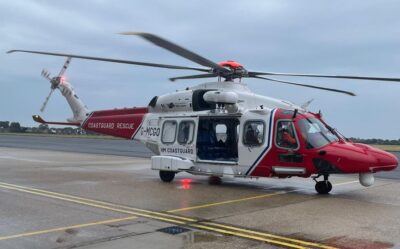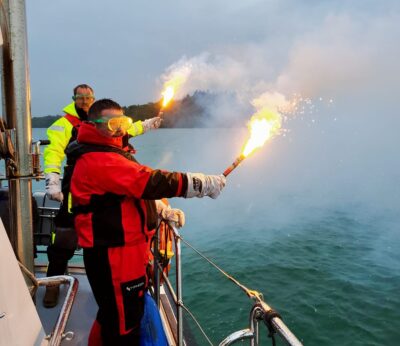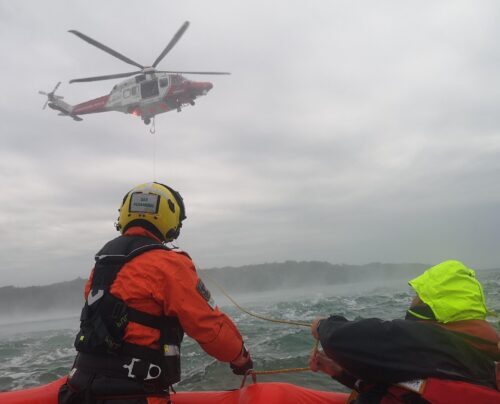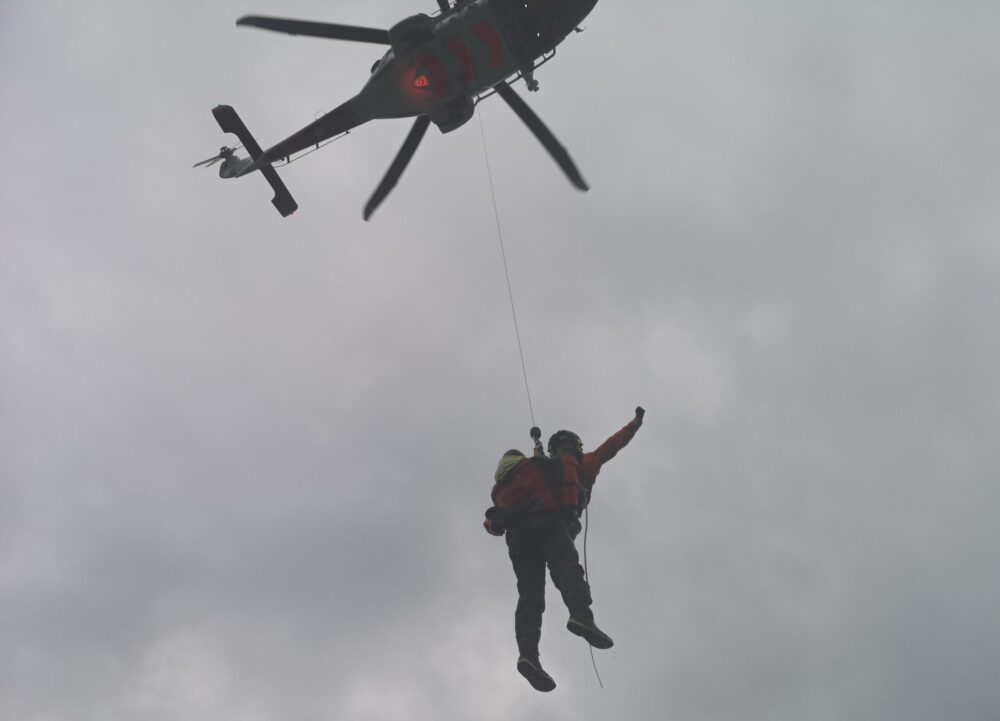RYA Sea Survival Course
RYA Sea Survival Course Instructor Training
As part of our continuing Professional Development, we attend training courses to further our own experience. This gives us perspective to present to you on the RYA Sea Survival Course. it turned into a pretty exciting time!
So even though we have a very accomplished Instructor for Sea Survival, I decided to attend the Sea Survival Instructor Course to better support our learning packages in this area. 
The three day course comprised some classroom based activity on background Knowledge in ‘Search and Rescue’ (SAR). There were up to date interactive training techniques and how our bodies cope with cold water exposure.
Getting in the water!!
We experienced the water based parts of the course we teach for a much longer period. Finally, in the waters of the Eastern Solent for real, with liferafts….. and a helicopter!
The RYA Sea Survival Course helps users of small craft understand what actions to take if disaster were to strike at sea. The course was supported by Steve and Rose from Ocean Safety, who brought along a load of liferafts and training kit.
So.. on Tuesday 13th September at 12:50, we boarded the army’s motor cruisers and headed out from Gosport, arriving in Osborne bay around 13:30
 Using Pyrotechnics!!
Using Pyrotechnics!!
We trialled the use of hand flares to ensure that we teach people exactly the correct way to fire these. Flares alert people to our position and signal that we are in distress.
With support from two smaller ‘Ribs’ we inflated the Liferafts and got on board. We had Liferafts with a capacity for 8 persons, it felt cramped with only 6 of us. Whilst undertaking basic ‘liferaft management’ activities, we drifted alone for a few hours.
Time to go home..
When the time was up, the coastguard helicopter came and dropped one of their team onto our raft. They ‘lifted’ some of the raft members to safety. The ‘downdraught’ from the helicopter is truly incredible and literally breathtaking!
The rest were ‘rescued’ by the RIBs and motor boats.

Whilst only a training day, the cold and exhaustion at the end was significant and emotive. The thought of being in a real raft, in a real situation, for much longer was that we should do everything to prepare for it well but aim to avoid it!
This experience has helped me modify our course presentation and thought processes, even enabling us to provide better links and resources to folks attending the course. Check out our course dates in the calendar if you’d like to come and join us.













